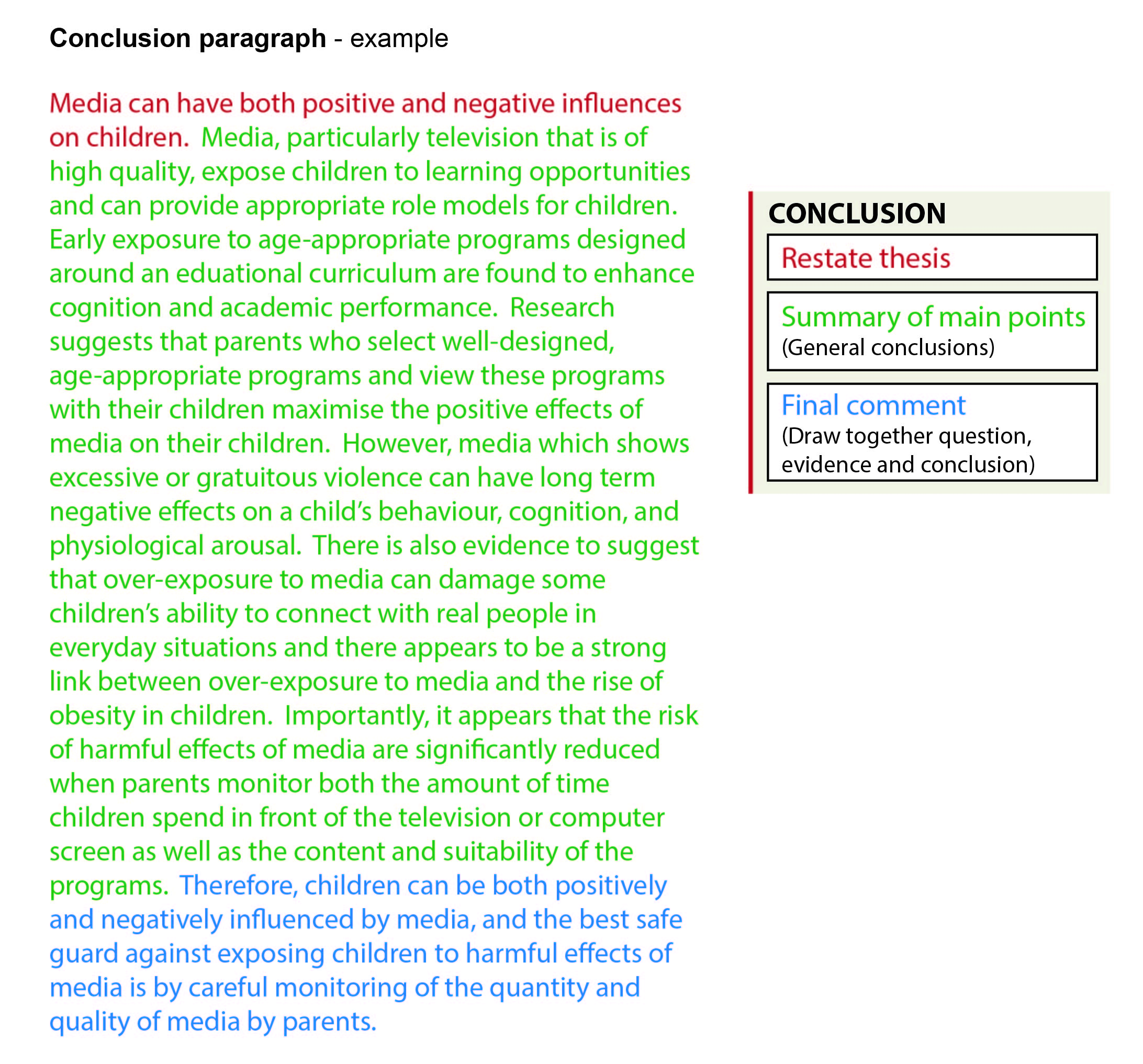
❓ Conclusion Maker: Questions & Answers
Conclude with a quotation from or reference to a primary or secondary source, one that amplifies your main point or puts it in a different perspective. A quotation from, say, the novel or poem you're writing about can add texture and specificity to your discussion; a critic or scholar can help confirm or complicate your final point A conclusion is the part of any writing the readers will remember the most. Rephrase your thesis statement in a single sentence. Then, outline the central ideas (in a descriptive essay) or arguments (in a persuasive or argumentative essay). Finish your conclusion with a call for action or analysis of the prospects of the discussed issue · A strong conclusion aims to: Tie together the essay’s main points Show why your argument matters Leave the reader with a strong impressionReviews: 2

What are the key components of a good conclusion?
Conclude with a quotation from or reference to a primary or secondary source, one that amplifies your main point or puts it in a different perspective. A quotation from, say, the novel or poem you're writing about can add texture and specificity to your discussion; a critic or scholar can help confirm or complicate your final point Conciseness + Catchphrase + Value for a reader = Good conclusion 1. Short and to the point The final part of the essay is definitely not for long reflections and new suggestions. The point is to recap all the information you have presented above. Do not overload your readers. 2. Memorable Use eye-catching phrases to conclude your essay Your conclusion should also refer back to your introduction, summarize three main points of your essay and wrap it all up with a final observation. If you conclude with an interesting insight, readers will be happy to have spent time on your writing. See how a professional writer creates a thought-provoking conclusion

Step 1: Return to your thesis
A conclusion is the part of any writing the readers will remember the most. Rephrase your thesis statement in a single sentence. Then, outline the central ideas (in a descriptive essay) or arguments (in a persuasive or argumentative essay). Finish your conclusion with a call for action or analysis of the prospects of the discussed issue · A strong conclusion aims to: Tie together the essay’s main points Show why your argument matters Leave the reader with a strong impressionReviews: 2 · An effective conclusion is created by following these steps: 1. Restate the thesis. An effective conclusion brings the reader back to the main point, reminding the reader of the purpose of the essay. However, avoid repeating the thesis verbatim. Paraphrase your argument slightly while still preserving the primary point. 2. Reiterate supporting points

Table of contents
50 most effective words to conclude an essay As Can Be Seen After All By And Large Generally Speaking In Fact To Sum Up In the Final Analysis On the Whole All Things Considered In Any Event As Shown Above In Short In Either Case All in All In the Long Run In Brief Given These Points In Essence As Has Been Noted In A Word On BalanceEstimated Reading Time: 8 mins Your conclusion should also refer back to your introduction, summarize three main points of your essay and wrap it all up with a final observation. If you conclude with an interesting insight, readers will be happy to have spent time on your writing. See how a professional writer creates a thought-provoking conclusion Conciseness + Catchphrase + Value for a reader = Good conclusion 1. Short and to the point The final part of the essay is definitely not for long reflections and new suggestions. The point is to recap all the information you have presented above. Do not overload your readers. 2. Memorable Use eye-catching phrases to conclude your essay

Calculate the price of your order
Conclude with a quotation from or reference to a primary or secondary source, one that amplifies your main point or puts it in a different perspective. A quotation from, say, the novel or poem you're writing about can add texture and specificity to your discussion; a critic or scholar can help confirm or complicate your final point · An effective conclusion is created by following these steps: 1. Restate the thesis. An effective conclusion brings the reader back to the main point, reminding the reader of the purpose of the essay. However, avoid repeating the thesis verbatim. Paraphrase your argument slightly while still preserving the primary point. 2. Reiterate supporting points · Essay conclusion 7 — What is something that should be taught in school that isn't? Financial literacy is one of the most important things a person needs to understand as a fully functional adult. It's crucial for someone to be able to know how to purchase a car, open a bank account, invest in a k plan, and pay back his or her student debt all while being able to
No comments:
Post a Comment